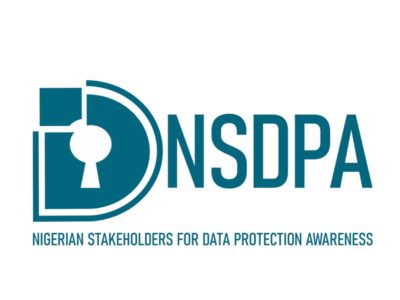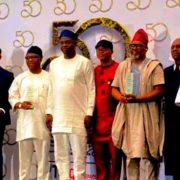Mobile industry consolidation and 4 to 3 mergers receives increasing attention. It is a natural development in an industry in which scale is important and which prices continue to fall while traffic increases. Strand Consult has studied this topic for more than 20 years, including its ground-breaking report on the 5 to 3 mobile industry consolidation in South Korea, considered today to be the world’s leading broadband market.
The US, another leading nation for mobile services, has seen significant consolidation of the mobile market. However investment and innovation in the mobile industry remain high. Strand Consult’s 2014 report The EU’s Broadband and Telecom policy is not working. Europe is falling further behind the US document the many measures on which the European Union fell behind the US. The EU challenges are long-standing, and despite EU policymakers’ promise to improve policy, conditions have not improved for operators.
RELATED: Everyone talks about OpenRAN, but no one buys it – Strand Consult reports
Right now we are seeing alternative ways to consolidate the industry: one way is by sharing infrastructure (active and passive infrastructure) that includes network sharing and national roaming in rural areas as well as divestment of mobile towers. The other way is by splitting telecommunications companies into an infrastructure and a service company, it is the model TDC in Denmark, Telia in Sweden and most recently TIM in Italy has chosen to do.
Most of these models are not about creating value for shareholders through better operations, but about reclassifying the earnings of the companies. Put simply, you can say that a telecommunications company is usually traded at 10 times earnings while an infrastructure company is traded at 25 times earnings. By moving big parts of the earnings from a classic telecommunications company to an infrastructure company, you can increase the value of the company solely by reclassifying the assets of the company.
Strand Consult calls this exercise “financial acrobatics”. It misses the debate about whether it is a model that stimulates technological development and long-term investments. We believe that a telecommunications infrastructure company cannot be compared to a classic infrastructure company that owns bridges, roads, or airports. The big difference is that very large parts of the infrastructure that a telecommunications infrastructure company owns has a limited lifespan and must be continuously upgraded.
To put it very simply, if the political and regulatory systems will not allow the industry to run more efficient companies, then the industry will probably have to find other ways to create the values that the telecommunications industry’s shareholders are looking for in a world in which telecom stocks have been a poor investment.
Following are key observations from Strand Consult on consolidation and the role of 4 to 3 mergers in competitive world.
4 to 3 mobile mergers can be derailed by operators telling a story too good to be true and regulators with a religious approach to consolidation
Strand Consult has analyzed consolidation in the mobile industry beginning in year 2000. Our first report appeared in 2002 describing the process in South Korea going from 5 to 3 operators. We described Brazil where many operators were consolidated into 4 today. We have also described the inconsistencies in Europe, Latin America, and USA where 4 to 3 are allowed in some cases and not others and the associated remedies.
Our research has revealed the folly of regulators to reject 4 to 3 mergers for reasons of competition and price, only to find that their logic was wrong and that prices increased. See the case of Denmark: The EU Competition Authority’s Role in the Failed Telenor Telia Merger in Denmark and the Consequences for Europe – Post Mortem Part I and The consequences of the failed Telenor Telia merger in Denmark – Post Mortem Part II in which DG Competition’s decision under the leadership of Danish Margrethe Vestager became a gift to the incumbent, TDC.
Strand Consult’s research project “Why four to three mobile mergers fail” documents the mistakes made both by operators and regulators in merger review. In practice, mobile operators tend to “oversell” their transaction while regulators apply outdated or inappropriate analytical models to assess the deal. Strand Consult documents that many mobile operators’ desperate efforts to make their merger look more palatable to regulators unwittingly backfire. It also details the frequently underestimated but no less important political context in which merger decisions are made. Read more.
National roaming regulation negatively impacts telecom investment and competition, shows a new international study by Strand Consult
The key challenge with mandated national roaming is that it is not necessarily clear to the customer on which network one is roaming. Thus, the operator’s incentive to market a superior network experience is removed. The customer cannot “reward” his preferred operator by switching for a superior experience.
In our report ”Understanding the impact of national roaming on investments and competition” we look at how different national roaming models impact the mobile market and operators’ willingness to invest. This report focuses on the ways that regulators can support private investment for 4G and 5G coverage in rural areas today and in the future.
The report´s goal is to analyze how forced national roaming without the right pricing strategy can undermine the regulatory objective of infrastructure-based competition and reduce overall network quality and investment. The best long-term outcomes for consumers of telecommunications services will emerge from markets characterized by infrastructure competition – where two or more distinct networks compete for customers on the basis of providing a better product based on proprietary infrastructure.
The key challenge with mandated national roaming is that it is not necessarily clear to the customer on which network one is roaming. Thus, the operator’s incentive to market a superior network experience is removed. The customer cannot “reward” his preferred operator by switching for a superior experience. Read more.
What creates competition in the telecommunications industry? Can the number of mobile operators be compared with the number infrastructure equipment providers like Huawei, Ericsson, Nokia, Samsung and ZTE?
There are two critical debates in the telecom industry. One is about mobile market consolidation, a market in which Deutsche Telecom, Vodafone, Telenor, Telefonica, and Orange describe as the need for 4 to 3 mergers. The other debate is how many suppliers are needed to ensure competition in the infrastructure equipment market.
Strand Consult has analyzed these issues and has described the benefits of consolidating the mobile market. Strand Consult has also studied the use of Chinese equipment from suppliers like Huawei and ZTE. Our research describes in detail how switching from Huawei and ZTE to non-Chinese suppliers does not increase cost. Indeed using Chinese equipment is associated with increased security risk and associated cost, and as such, gives advantage to those providers which opt out from Chinese equipment.
Simply put, competition in these mobile network and infrastructure markets is not driven by the number of providers, but rather, technology. If an operator does not upgrade its network to the latest technology, it will lose market position. Similarly, if an infrastructure provider does not innovate its equipment, it will lose customers. Read more.
Margrete Vestager and DG Competition have lost an important lawsuit – What can the telecommunications industry learn from the Hutchison/O2 case
Strand Consult has analyzed 4-3 mergers for many years. We have described the cases that the EU’s DG Competition has rejected and the cases that have been approved outside the EU. Strand Consult has observed that competition authorities have limited understanding of the impact of technological development on competition in the telecommunications world. See Strand Consult’s research note EU Competition Commissioner Margrethe Vestager is a gifted woman who should spend some time to get acquainted with how the telecommunications market works.
The European General Court annulled DG Comp’s 2016 decision and blocked the Hutchison Three/O2 merger in the United Kingdom. The court ruling comes after Hutchison sued the European Commission. We’re talking about a merger in which Hutchison/O2 expected to reap significant return from a £9.25bn deal. In the meanwhile, O2 have moved on to a merger with Virgin Media, a deal now awaiting regulatory approval. Read more.
After some years, classic consolidation and 4 to 3 mergers has yet to notch a major regulatory success. Put simply, it is difficult to be allowed to make the in-market consolidation that creates the greatest value for all parties including customers. It is possible to consolidate a cable TV provider with a mobile provider conversely, so it is not a model that creates the great value for shareholders, and it is not a model that stimulates investment in new infrastructure to the happy of the market.
Many competition and regulatory in the telecommunications industry have not looked at the historical facts or have misinterpreted them. If competition regulation in Europe were successful, Europe would be at the forefront when it comes to investing in and implementing new technological solutions for the benefit of consumers and the digital society. It is not.
Right now, Europe looks like a region that relies heavily on OTT solutions from U.S. big tech companies like Google, Amazon, Microsoft, and Apple, as well as telecom infrastructure vendors like Huawei. This is while Europe has put itself in a grotesque dependency of Russian gas, where Putin can sit in Moscow and laugh while contemplating when to turn off the gas to Europe. The reality is that Europe looks like a junkie sitting with a needle in the arm, dependent of Russian and Chinese junk.
In the report Understanding 4 to 3 mobile mergers Strand Consult describes how telecom operators have had difficulty to consolidate the telecommunications market, especially when reducing the number of mobile operators from 4 to 3. Strand Consult has studied this topic for more than 20 years. Its first report featured South Korea with its 5 to 3 merger in 2000. A lot has happened since then, and Strand Consult has produced “the report of reports” which combines and summarizes all the knowledge about these mergers.
Strand Consult is intrigued why some attempts to create 4 to 3 mobile markets succeed while others fail. Together with leading telecom and competition experts, Strand Consult has collected, analyzed, and distilled this knowledge into practical and actionable steps for operators. This includes the relevant legal, regulatory, historical, and technological aspects of different countries and markets.
The purpose of the report Understanding 4 to 3 mobile mergers is to help operators save time and money. This report does not eliminate the need to hire lawyers to conduct the transaction, but it will help save time and improve communication with key stakeholders wherever they are: the investment community, political/regulatory systems, the media, employees, suppliers, academia, and so on. This is also the report for the CEO which has never led a 4 to 3 merger, which is most CEOs.
In the report Understanding the impact of national roaming on investments and competition we analyze how forced national roaming without the right pricing strategy can undermine the regulatory objective of infrastructure-based competition and reduce overall network quality and investment. The best long-term outcomes for consumers of telecommunications services will emerge from markets characterized by infrastructure competition – where two or more distinct networks compete for customers on the basis of providing a better product based on proprietary infrastructure.
Strand Consult has over 25 years built unique knowledge on how to improve conditions for operators when it comes to building and operating mobile networks. Its report ”Understanding the impact of national roaming on investments and competition” looks at how different national roaming models impact the mobile market and operators’ willingness to invest. This report focuses on the ways that regulators can support private investment for 4G and 5G coverage in rural areas today and in the future.
The key challenge with mandated national roaming is that it is not necessarily clear to the customer on which network one is roaming. Thus, the operator’s incentive to market a superior network experience is removed. The customer cannot “reward” his preferred operator by switching for a superior experience.
For more than 25 years, Strand Consult has debunked the many myths of mobile industry hype. Strand Consult’s goal is to create objectivity and transparency about the actors promoting different kind of consolidation so that mobile operators, investors, and other stakeholders can make informed decisions. See Strand Consult’s 4 to 3 mergers library with dozens of reports and research notes.
Origimal title by Strand Consult: ‘You ain’t seen nothing yet III – Everyone talks about consolidation and 4 to 3 mergers, but regulators don´t buy it.’

































